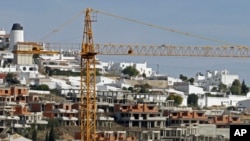While struggling under the weight of its $100 billion bailout, Portugal's state and private companies are selling off bits of themselves to raise money. Portugal's former colonies are doing much of the purchasing. With China also getting involved, there are disagreements over whether the sell-offs are a good idea.
Many centuries ago, Portugal was rich. Explorers like Vasco da Gama sailed up the Tagus river into the port here at Lisbon bringing riches from conquered lands. But nowadays, it is a different story.
The government has to pay 12 percent interest rates to borrow over 10 years. Wages are falling. The economy is stagnant, and the government is struggling to pay off its debts. Both private companies and government need fresh capital from abroad.
Foreign investment in Portugal's state, private companies
This drummer playing to tourists walking along the riverside promenade in Lisbon is not the only Angolan making his presence felt in Portugal's capital. His country is acquiring stakes in banks and energy firms - and has been invited to invest in Portugal's national airline and airport operators.
A Brazilian company is buying the biggest Portuguese cement maker amid some local opposition. The fact that Angola has a poor human-rights record makes some Portuguese uneasy. But that is not the reason Portugal's union confederation international secretary, Augusto Praca, does not like these transactions.
He said the unions are against selling Portuguese companies to international stakeholders, because these Portuguese companies are strategic - not only for economic development - but also because they produce a lot of profit. He said Portugal needs this profit to pay off its debts.
Unease over China's shopping spree
China also is getting in on the act. It has bought stakes in Portugal's main electricity supplier and also the company that runs the power grid. This is controversial. Many Portuguese feel strategic assets should not be sold to China, an undemocratic country with little transparency on human rights.
A prominent left-wing politician recently accused the government of lacking honor by selling to Beijing. But the former chairman of the Lisbon stock exchange, Miguel de Marques, says Chinese money can be attractive, as illustrated by the recent electricity company deals.
"A Chinese company called Three Gorges made a premium offer, paid the best price, and offered a certain number of other conditions, like keeping the headquarters in Portugal, which is the place where economic value is created. So it was an unbeatable proposition," he said.
There are still some businesses in Portugal that are thriving.
The foreigners lining up at a famous pastry shop in Lisbon are customers, not shareholders. But the low-earning Portuguese have high debts. They would find it hard to invest in their own companies, even if they wanted to. Portugal is perhaps now past the point of choosing from where it gets badly needed investment.







